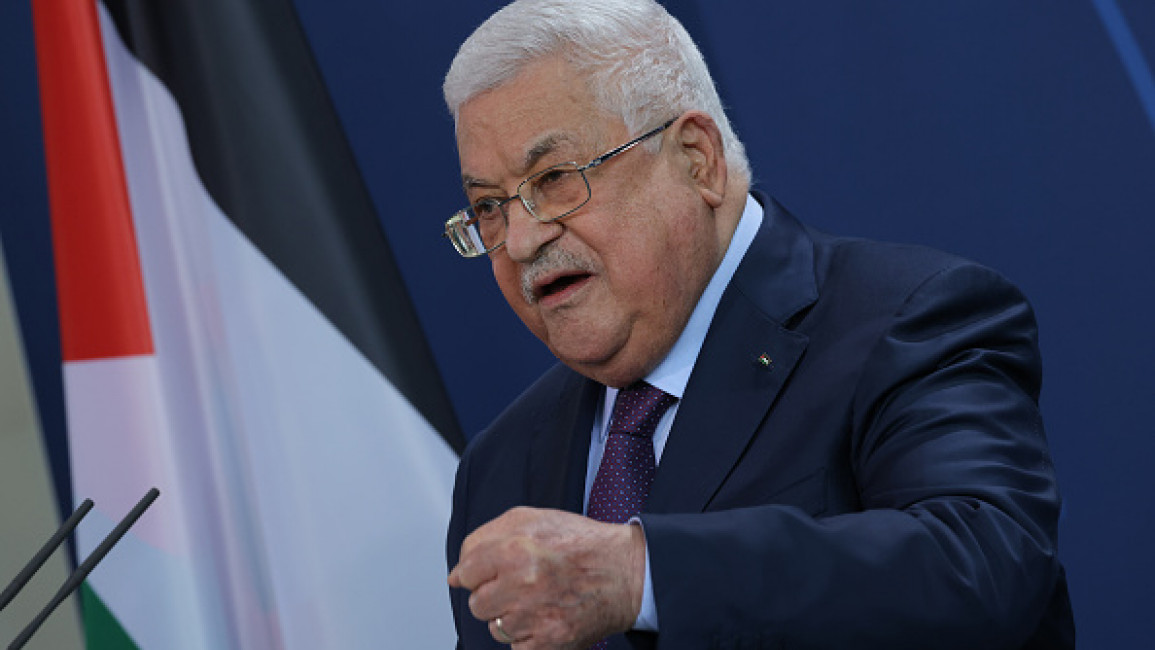Palestinian President Abbas fires nearly all West Bank governors
Palestinian President Mahmoud Abbas issued a presidential decree on Thursday sacking 12 governors in the West Bank and the Gaza Strip, the Palestinian WAFA news agency reported.
The official news agency for the Palestinian Authority (PA) said the governors had been "sent to retirement", without giving reasons for the move.
In the West Bank, the governors of Jenin, Nablus, Qalqilya, Tulkarm, Bethlehem, Hebron, Tubas, and Jericho were sacked.
In the Gaza Strip the governors of North Gaza, Gaza, Khan Yunis and Rafah were removed from their jobs. Gaza has been ruled by Hamas since 2007, with the PA-appointed governors' posts only holding symbolic value.
Only three areas — including Ramallah, the seat of the Palestinian Authority — retained their governors.
New candidates for the vacant posts will be selected by a newly-formed committee, subject to Abbas' approval.
Although the decision is unlikely to have an immediate impact on the ground, experts said it signals Abbas’ recognition of the authority’s deepening unpopularity and his desire to show that he is heeding calls for change in the face of mounting difficulties.
"It gives the authority a new face, which is important particularly as the governors are in charge of all security matters,” said political analyst Jehad Harb. “But it won’t change anything really. (Abbas) is trying to rebuild some public trust, but it will take much more.”
Palestinians have not had the chance to vote in national elections since 2006. Abbas’ original four-year term technically ended in 2009.
Although governors said they had expected an overhaul for years given growing demands for change, many said Thursday’s decree took them by surprise. Yet none expressed dissent with the decision of the president, who rule has become increasingly autocratic in the past years.
"I can understand how fresh blood is important,” said Jihad Abu al-Assal, the governor of Jericho and the Jordan Valley. “These are the president’s decisions and even if we don’t understand all the reasons for it, we will comply.”
The move comes as the secular nationalist Fatah party, which runs the internationally recognised PA, grapples with mounting crises — internal and otherwise.
Israeli Prime Minister Benjamin Netanyahu’s far-right government has imposed numerous sanctions on the authority, expanded settlements on lands Palestinians seek for a future state, and overseen Israeli military raids into West Bank cities that Palestinian officials say weaken their control.
Powerful Israeli ministers in the government have openly called for the collapse of the PA and the annexation of the West Bank.
These policies have been accompanied by a surge in vigilante settler violence against Palestinians.
Internal Palestinian tensions have escalated since 2021, when Abbas delayed legislative elections in which Fatah was expected to suffer another embarrassing defeat to the Hamas militant group. Hamas wrested control of the Gaza Strip in 2007 — a year after winning Palestinian parliamentary elections.
Over the past two years, surging violence in the occupied West Bank has added to the authority’s troubles. The recently emerging ties between Fatah activists and Islamic militant groups — particularly in flashpoint cities such as Jenin and Nablus — have rattled the security establishment and underscored internal divisions.
Given that the PA maintains security coordination with Israel, Palestinians increasingly see it less as a government than a vehicle for corruption and collaboration. Public services have declined as strikes for better pay among teachers, lawyers and other civil servants cripple key sectors.



